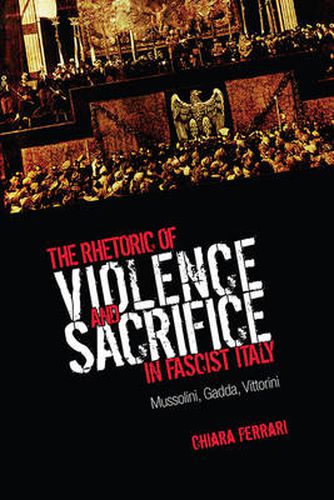Readings Newsletter
Become a Readings Member to make your shopping experience even easier.
Sign in or sign up for free!
You’re not far away from qualifying for FREE standard shipping within Australia
You’ve qualified for FREE standard shipping within Australia
The cart is loading…






The Italian fascists under Benito Mussolini appropriated many aspects of the country’s Catholic religious heritage to exploit the mystique and power of the sacred. One concept that the regime deployed as a core strategy was that of sacrifice. In this book, Chiara Ferrari interrogates how the rhetoric of sacrifice was used by the Italian fascist regime throughout the interwar years to support its totalitarian project and its vision of an all-encompassing bond between the people and the state.
The Rhetoric of Violence and Sacrifice in Fascist Italy focuses on speeches by Benito Mussolini and key literary works by prominent writers Carlo Emilio Gadda and Elio Vittorini. Through this investigation, Ferrari demonstrates how sacrifice functioned in relation to other elements of fascist rhetoric, such as the frequent reiterations of an impending national crisis, the need for collaboration among social classes, and the forging of social contact between the leader and the people.
$9.00 standard shipping within Australia
FREE standard shipping within Australia for orders over $100.00
Express & International shipping calculated at checkout
The Italian fascists under Benito Mussolini appropriated many aspects of the country’s Catholic religious heritage to exploit the mystique and power of the sacred. One concept that the regime deployed as a core strategy was that of sacrifice. In this book, Chiara Ferrari interrogates how the rhetoric of sacrifice was used by the Italian fascist regime throughout the interwar years to support its totalitarian project and its vision of an all-encompassing bond between the people and the state.
The Rhetoric of Violence and Sacrifice in Fascist Italy focuses on speeches by Benito Mussolini and key literary works by prominent writers Carlo Emilio Gadda and Elio Vittorini. Through this investigation, Ferrari demonstrates how sacrifice functioned in relation to other elements of fascist rhetoric, such as the frequent reiterations of an impending national crisis, the need for collaboration among social classes, and the forging of social contact between the leader and the people.